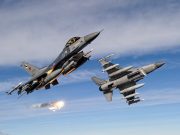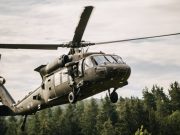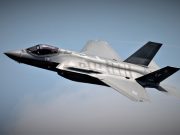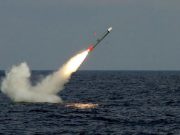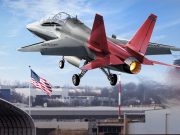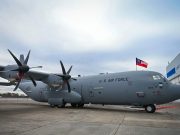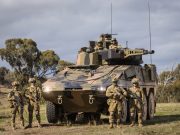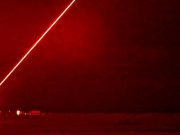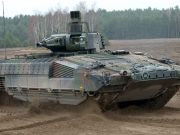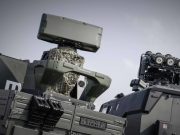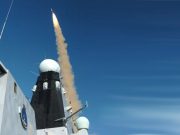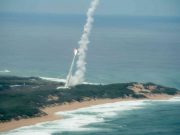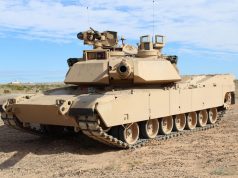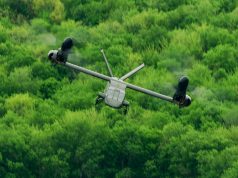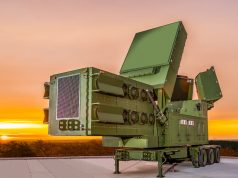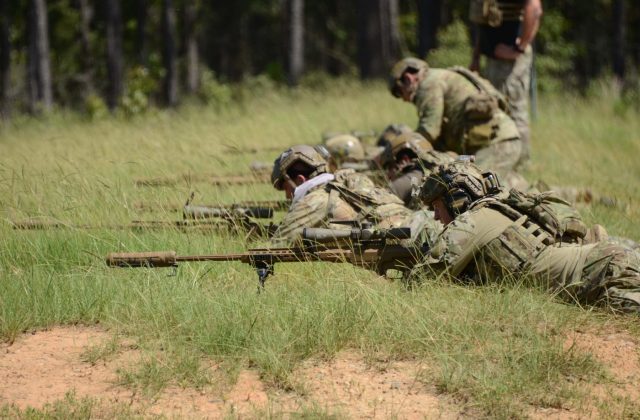
The US Army has started operational testing of the MK-22 Precision Sniper Rifle (PSR), its newest generation sniper system, tackling the project’s final hurdle before fielding.
“The modular nature of the PSR allows it to be tailored to meet mission requirements and is appealing to airborne snipers who are typically armed with long-barreled precision rifles of a single caliber offering,” said Sgt. 1st Class Marcus Love, Airborne and Special Operations Test Directorate, Test Noncommissioned Officer.
Because of the single-caliber offerings, snipers requiring additional capabilities must deploy with additional weapons. The PSR can be configured for multi-calibers by the sniper in the field and requires no higher level maintenance to reconfigure. It will also extend engagement ranges for both anti-material and anti-personnel target engagements.
“The increased engagement range will keep snipers safer and increase the options for the local commander employing these combat multipliers,” said Sgt. Austin Stevens, a sniper assigned to the 1st Battalion, 325th Airborne Infantry Regiment, 2nd Brigade Combat Team, 82nd Airborne Division.
“With a folding stock and removable suppression system, the PSR will provide airborne snipers a more compact load during airborne infiltration operations without reducing their lethality while providing a precision rifle platform more conducive to their combat environment,” said MK-22 Project NCO Sgt. 1st Class Jonathan Copley.
Spc. Michael Liptak, a sniper with Headquarters & Headquarters Company, 2nd Battalion, 325th Infantry Regiment immediately identified the attributes of accuracy in regards to the MK-22. “I was surprised at the accuracy and the straightforward approach to testing the PSR,” he said.
Prior to testing, snipers from across the airborne and special operations community took part in new equipment training which included familiarization with the system, maintenance, target engagement, system configuration and zeroing procedures.
For Spec. Nathanael Keffer, a Sniper with 2nd Battalion, 508th Infantry Regiment, the PSR’s versatility to adapt to multiple mission sets was a marked advantage. “The PSR is a very versatile weapon system that can be tailored to meet multiple mission requirements,” said Keffer.
To evaluate this performance measure of the PSR, the ABNSOTD test team applied the organization’s mobile weapons boresight collimator to the rifle after jumping to make sure the sniper’s pre-mission zero was not degraded by shock during the jump.
“This process establishes a baseline for sight reticle locations prior to and post airborne insertion,” said Miles Crawford, Test Technology Branch Chief, ABNSOTD. “Testers can monitor any shift in the weapon sight reticle that may have been induced by shock associated with static line parachutes,” Crawford said.

The MK-22 is being delivered to the US Army by Barrett under a $49.9 million five year contract from March this year. The service will procure approximately 2,800 of the rifles from the current maker of the Army’s M107 .50 Caliber Long Range Sniper Rifle.
In addition to the MK-22, the Army’s Precision Sniper Rifle (PSR) program also includes the Leupold & Stevens (Beaverton, OR) Mark 5 HD scope and a sniper accessory kit.
The MK-22 is a modular system that will be fielded with three separate calibers, the .338 Norma Magnum, .300 Norma Magnum and 7.62×51 NATO.
SOCOM previously awarded a contract to Barrett to purchase the MRAD as part of their Advanced Sniper Rifle (ASR) program.


